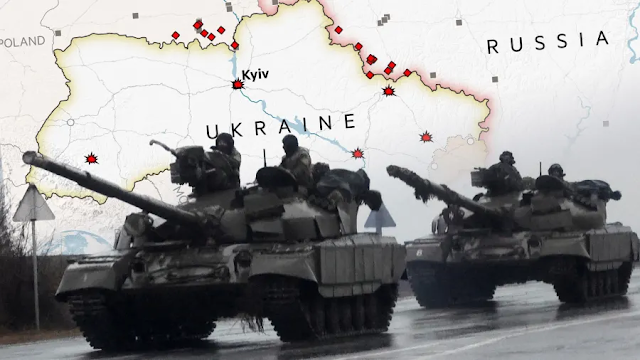Modern wars are fought less with weapons, but, more with food, energy and economy.
Every country needs oil and gas to meet its energy needs, and the EU nations are no exception. In fact, The EU has been one of the largest purchasers of Russian crude so far. Extensive pipelines connect Russia with the other EU countries for oil. One of the most important is the "Nord Stream 1", an offshore pipeline 1200 Km long under the Baltic Sea, which connects Russia with Germany and the rest of the EU. Now that Russia has reduced its export substantially, the EU is on the verge of getting into deep, deep trouble. The Russians have been smart by not cutting off the gas supply completely, but by reducing it and increasing the price many folds. The European dealers are ready to buy oil at a price hike of up to $100/barrel. Winter is nearing, and it is that time of the year when oil and gas consumption peaks because of the usage of heaters and other stuff. Models predict that even with all the gas storage in the EU, 90% full by October end, the gas reserves would still reach dangerously low levels by December end. That puts the EU at a position of high risk, and without gas, the winter would be miserable for the governments and the people. So, the EU is at the mercy of Russia to pass the winter. While the Russian oil and gas sales to Europe have decreased, it has been compensated by trade with Asian countries. Asian countries are importing more oil and gas than usual. One may ask, why not cut off Russian gas and use gas from Qatar and the USA? Well, the problem is with the distribution of gas. There are a lot of drop-off points, but the pipeline network is not well established like one with Russia. So, even if the required amount of gas is imported from the USA, a large part of the continent will choke before receiving it. We've seen the effects on the energy front. Coming to the food market, Ukraine and Russia, combined, have been the largest exporters of Sunflower oil and major exporters of wheat, maize and barley. As a result of war, the exports have been either substantially reduced or cut. Complementing the situation, countries like India have either largely reduced the export of wheat and other goods or banned them, keeping in mind their own food security. Moreover, Ukraine has been one of the world’s largest contributors to the World Food Program – the UN agency that provides food aid to countries in crisis. It's estimated that Ukraine alone contributes around 40% of its wheat. Many Eurasian countries, including India, depend on sunflower oil imports from Russia and Ukraine. The war has resulted in an acute threat to the food security of several nations. Now about the economy, heavy sanctions have been posed on Russia after the invasion. It was aimed to strain the Russian economy so that Russia might retreat from the invasion. But as it turns out, the effects of the sanctions have boomeranged. The Russian economy is doing better than expected, and on the other hand, the economies of 27 countries in the EU are slowing down very fast. The inflation in the countries has risen to a whopping 8.6% by June. Food prices and the prices of daily commodities skyrocketed. The currency of almost all countries in the EU has weakened by a considerable margin. Moscow also passed a rule that all the oil and gas trade shall be settled in the Rubles. This en masse resulted in the Ruble becoming one of the better-performing currencies in the world right now. Russia has almost doubled its revenue from selling oil and gas since the onset of the war. Meanwhile, the currencies of several nations, including India, have seen all-time lows. All this is the result of imposing "up-scaled" sanctions, which were originally designed for smaller countries, on a country as big and resourceful as Russia. Now there is a question of "How this will affect or benefit an economy such as India?". As things stand, the war has caused a depletion of forex reserves in India. It has also increased the liquidity in the market. Some experts feel that this might end up in a "Taper Tantrum" like situation. The rest of the story on the Indian economy may be addressed later, in a separate article. But... When will the war end? Well, as discussed earlier, the EU is dependent on Russia for oil and gas. So, my best take is that a conclusion to the war might be reached by the mid of this winter. I might very well take back my predictions amid the high uncertainty in a few months' time. As always, we have to wait and watch the advancements. Let's be hopeful for the future.

Comments